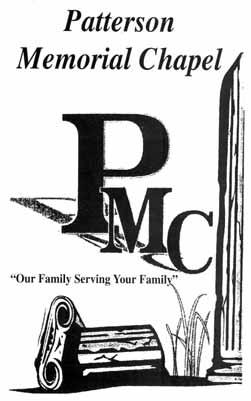
4 minute read
The Artwork of Asiana Pridgett
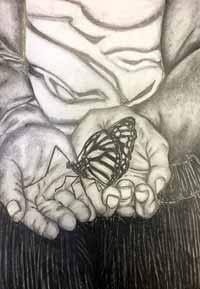
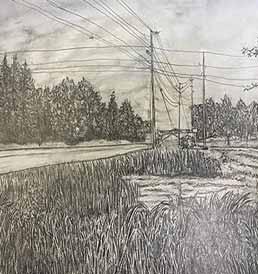
Advertisement
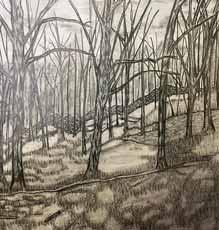
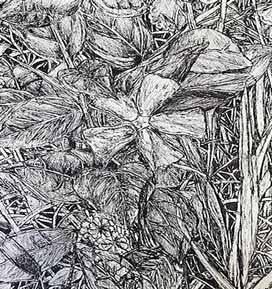
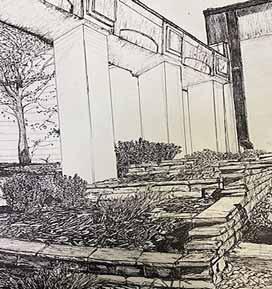
• Implement activities around self-care and set aside time for yourself. Breathing exercises, meditation and yoga can be powerful stress relievers, and studies consistently show that even just a few minutes of regular moderate or vigorous exercise can reduce your risk of depression.
• Simplify daily tasks to ease mental health symptoms. Whether it’s relying on apps to help you check off items on your to-do list, or being more realistic about the social commitments you make, there are many ways to ensure your life outside of work doesn’t unduly add to your stress.
• Look for job opportunities that will make you happier. Those in home healthcare let you make your own schedule, match you with assignments that fit your needs and preferences, and offer variety, support, flexibility and better nurse-to-patient ratios. To explore these benefits, visit careers.interimhealthcare.com.
During the ongoing challenges plaguing the nursing industry, it’s important to focus on your wellness. Doing so can help you get back to focusing on making a difference in the lives of your patients.
Happiness Cycles
We could have told them,if they’d asked:We’re happier now than we were a decade or two ago.
There is a new study out about happiness cycles throughout life. Scientists have done tests all around the world (80 different countries) and have come to a conclusion:We’re fairly happy when we’re young,but middle age takes a toll and our happiness levels fall,sometimes to the point of actual depression. Once we become seniors, the happiness levels rise again. They call it the U-Shaped Cycle.
Researchers pinpointed the late 30s for women as the most likely time for depression and low happiness levels, and the early 50s for men — then we spring back by the time we’re 70. They concluded that middle-age depression wasn’t related to having young children,income or job changes,or even divorce. The research paper is loaded with technical jargon,but once you wade through it one thing is clear:The researchers couldn’t come to a conclusion about what really causes the rise in happiness levels once we become seniors.
So they came up with three possibilities:1) Cheerful people live longer.
2) Friends die and we start to count our blessings. 3) We adapt to our strengths and weaknesses and in midlife give up our “infeasible aspirations.”(Translation:We give up our impossible dreams.)
That last one is irritating because scientists were grabbing guesses out of the air,not having any real answers.
To explain the low happiness levels, think about what happens in middle age:We had a child in college,or maybe two children. We had a mortgage. We had parents to care for.
I think it’s fairly clear why we become happier as seniors:We don’t have as many responsibilities — and we have the time,finally,to go after our “infeasible aspirations.”
Matilda Charles regrets that she cannot personally answer reader questions,but will incorporate them into her column whenever possible.
Write to her in care of King Features Weekly Service,P.O. Box 536475, Orlando,FL 32853-6475,or send email to columnreply@gmail.com.

How to Choose Heartburn Medicine
DEAR DR. DONOHUE:Please explain the difference between Protonix and the other medications available for GERD. I have been on Protonix for nine months,and no one is able to give me a clear definition. — E.S.
ANSWER:Heartburn,acid reflux, hiatal hernia and gastroesophageal reflux disease are different names for the same condition — the upward spurting of stomach acid and digestive juices into the esophagus,the long muscular tube that stretches from the throat to the stomach and through which food travels to arrive in the stomach.
The medicines that are the most powerful in suppressing acid production,and therefore in quieting heartburn symptoms,are proton pump inhibitors. “Proton”is another word for “acid.”There are five of them:Prevacid,Prilosec,Nexium,Aciphex and your Protonix. They work in a similar fashion. Each has its own slightly different profile and its own slightly different set of side effects. Which is best? The best one for you is the one that stops your heartburn,causes you the fewest side effects and costs the least.
There are many other GERD medicines — simple antacids like Maalox, for example. Tagamet,Zantac,Axid and Pepcid cut acid production in different ways from the proton pump inhibitors. If they work for a person, then he or she should stick with one of them.
Raising the head of the bed with 6inch blocks under the bedposts or lying on the left side while asleep keeps stomach acid in the stomach and can put an end to some people’s heart- burn without resorting to medicine. Staying away from caffeine,citrus fruits and juices,tomatoes and tomato products,chocolate,peppermint, onions and fatty or fried foods is another approach to minimizing heartburn symptoms.
The booklet on GERD (heartburn and hiatal hernia) explores this topic in full. Readers can order a copy by writing:Dr. Donohue — No. 501W,Box 536475,Orlando,FL 32853-6475. Enclose a check or money order (no cash) for $4.75 U.S./$6 Canada with the recipient’s printed name and address. Please allow four weeks for delivery.
***
DEAR DR. DONOHUE:A psychiatrist recently diagnosed my 20year-old granddaughter with dysthymia. Can you explain what it is?
— B.L.
ANSWER:Dysthymia is sadness that lingers for no good reason. It’s not quite the depths of dejection that qualifies as a major depression,but it is a state of a down mood that affects a person’s life and work. Dysthymic people have little energy,have poor appetites,are unable to sleep or sleep excessively and are consumed with pessimism.
With direction from a mental health professional and perhaps with medicines to right any imbalance of brain chemistry,most dysthymics can obtain relief.
***
DEAR DR. DONOHUE:I am 67 and have high blood pressure,high cholesterol and arthritic knees. Walking was my favorite exercise, but knee pain now prevents that. What exercise would be best for my knees? — R.C.
ANSWER:Swimming would be the ideal exercise. Even if you don’t know how,67 is not too old to learn. You also could do water aerobics — exercising in the water. Water provides buoyancy that protects your knees.
***
Dr. Donohue regrets that he is unable to answer individual letters, but he will incorporate them in his column whenever possible. Readers may write him or request an order form of available health newsletters at P.O. Box 536475,Orlando,FL 328536475.
